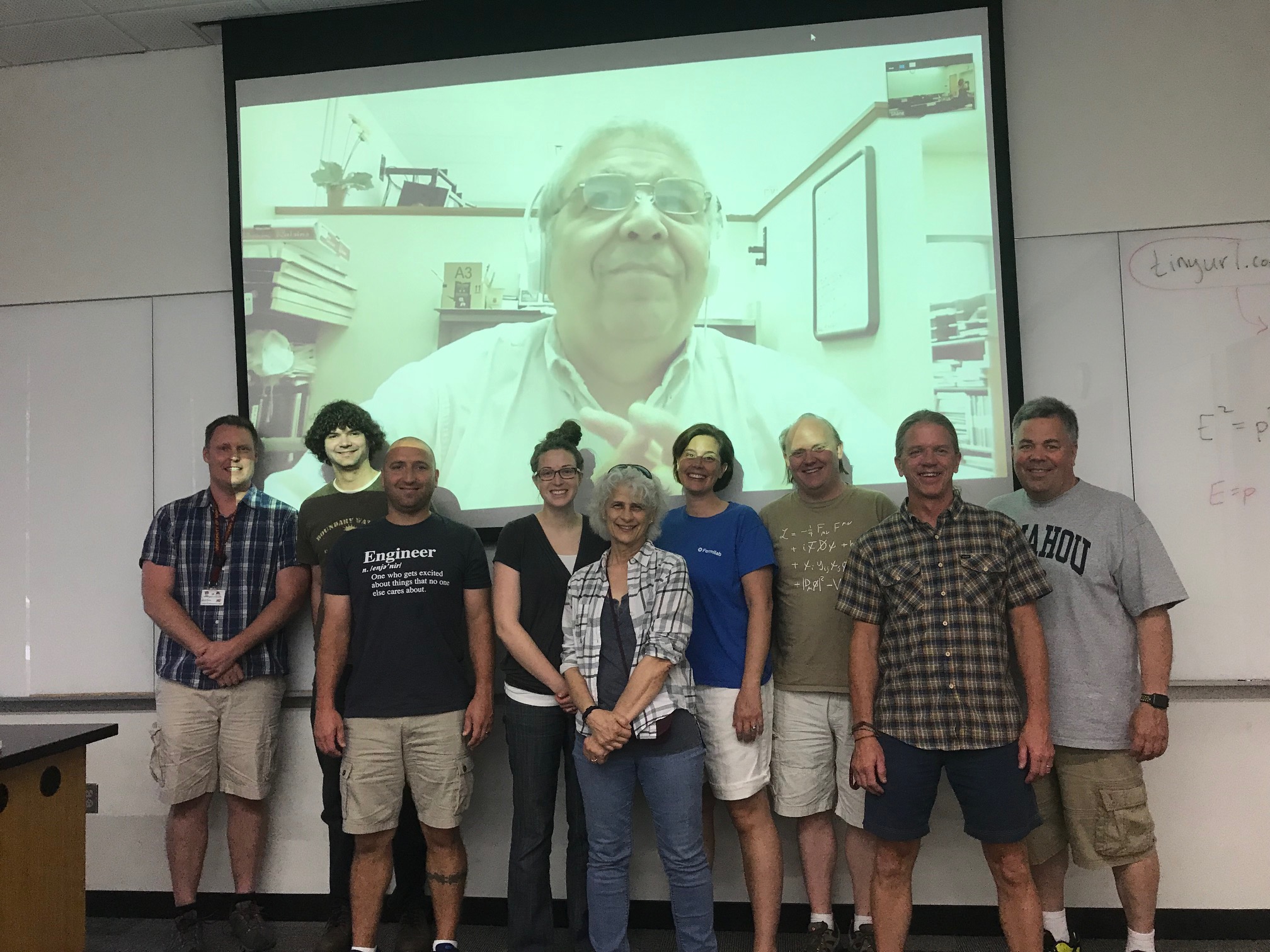Friday Flyer - February 22, 2019

Spotlight on the University of Minnesota QuarkNet Center
Located near the eastern bank of the Mississippi River in Minneapolis, this center held its 15th summer workshop for teachers in June 2018. QuarkNet staff rolled out a neutrino data workshop prototype, with teachers testing the activities and offering valuable feedback for workshop developers. The Minnesota center has a long tradition of offering a CMS masterclass in the spring for area high school students, and 2018 was no exception. Fresh off the neutrino workshop from last summer, the center plans to participate in the MINERvA neutrino masterclass as a part of IMC 2019. This year also brings another change; Greg Pawloski becomes the lead mentor, though long-time mentors Ken Heller and Dan Cronin-Hennessy will continue to be involved in center activity.


News from QuarkNet Central
Teachers, consider applying for the CPEP (Contemporary Physics Education Project) Award, recognizing educators who have made outstanding achievements in teaching contemporary physics topics. The award includes a monetary prize, plaque, citation, and a selection of CPEP classroom materials. Applications for the CPEP Award are due March 1.
A couple more reminders for teachers: Registration deadline for the 2019 PhysicsBowl is February 25. The 2019 Beamline for Schools (BL4S) competition at CERN is accepting proposals through March 31.
Have questions about masterclass measurements? Find out how you can get answers on the latest IMC circular, just out today. Orientations and updates for International Masterclasses (IMCs) have begun, so sign up as soon as you can. Institutes doing MINERvA masterclasses especially need orientations, since it is a new measurement. Register via Google form. Still want to sign up for IMC? It is late but still possible. Contact Ken and he can help you through the process.

Physics Experiment Roundup
With the LHC now in its Long Shutdown 2 (LS2), technicians and scientists have a chance to work on maintaining and upgrading experiments. Find out what work is going on at the ATLAS experiment during LS2 in preparation for the next LHC restart.
We know particle physicists work with large data sets all the time; for example, the BES III detector in China just announced accumulating a sample of 10 billion J/Psi events. Astronomers work with large amounts of data too. The Large Synoptic Survey Telescope, scheduled to come online in the early 2020s, will collect more than 20 terabytes of data each day for a decade.

Resources
You can find all sorts of explanations on the Internet: some correct, and some not-so-correct. In this recent video, Don Lincoln sorts through some explanations of why light slows down in water, revealing the correct reason for this phenomenon. As we've reported in the past, muons can be used to probe the impenetrable—from pyramids to volcanoes. Here's a new one: using muons to probe the inner workings of a thunderstorm, revealing some pretty incredible (dare we say, shocking?) voltages!

Just for Fun
Check out Superconductivity: The Musical, winning video of the 2018 Dance Your PhD competition.
QuarkNet Staff:
Mark Adams: adams@fnal.gov
Ken Cecire: kcecire@nd.edu
Shane Wood: swood5@nd.edu
